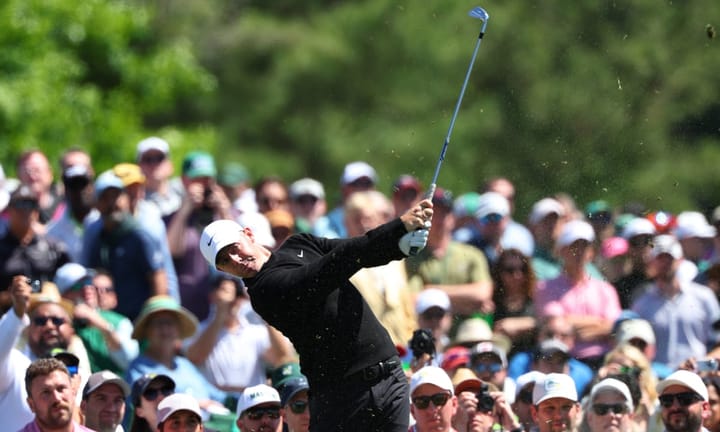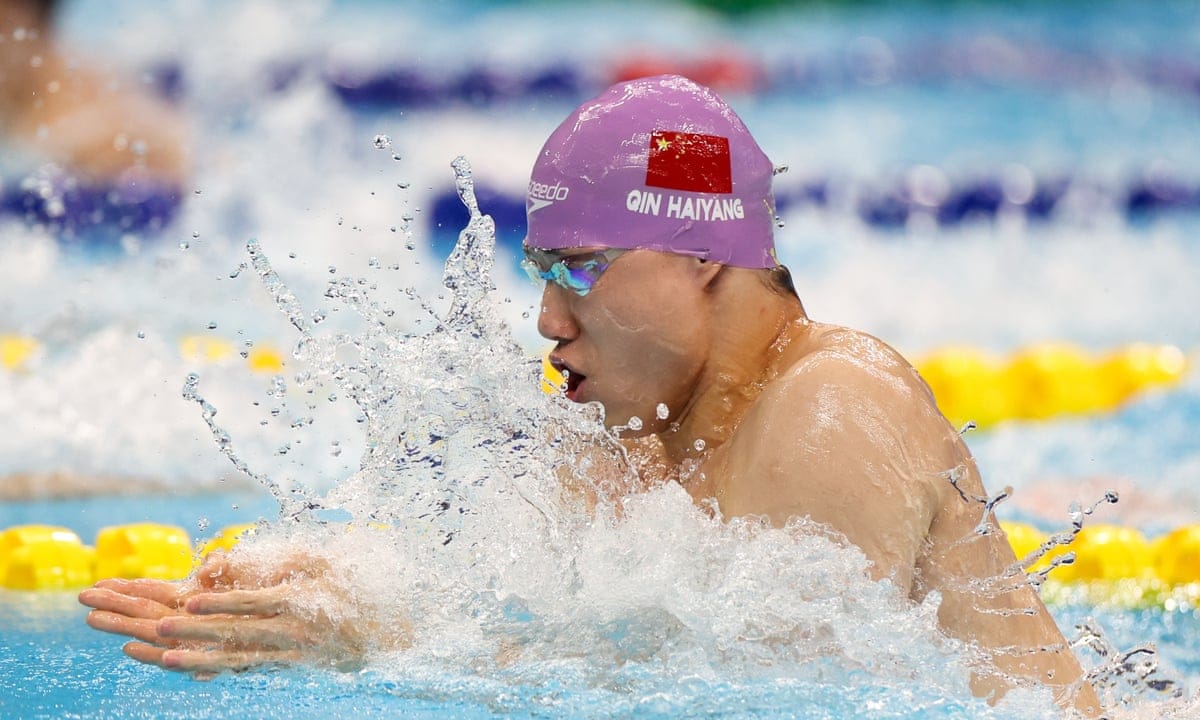A prominent Chinese breaststroke specialist has voiced concerns over what he perceives as biased anti-doping efforts targeting his team during their participation at the Olympic Games. The athlete suggests that such actions may be intended to undermine China's performance, which has seen significant success in recent years.
Qin Haiyang, a distinguished Chinese swimmer known for holding the men’s 200m breaststroke world record and being a contender against British champion Adam Peaty, shared his observations on social media regarding the frequency of anti-doping tests conducted on athletes from China. According to reports, these swimmers faced extensive testing within their first ten days in Paris, including during various hours throughout the day and night.
Qin expressed skepticism about the motives behind this intense scrutiny: "This suggests that European and American teams might feel threatened by our recent achievements." He reassured his peers saying, "We remain unfazed. Our focus is on maintaining a steady pace in preparation for competitions ahead."
China's swimming delegation has experienced an increased number of testing procedures following the revelations made by investigative journalists at The New York Times and ARD that uncovered positive doping test results from 23 athletes, among them Qin, prior to the Tokyo Games. In response to these findings, World Anti-Doping Agency (WADA) acknowledged the Chinese explanation involving contaminate food in their hotel kitchen but pledged to heighten testing measures for China's team at subsequent events.
Additional information surfaced on 15 July from Yu Liang, a nutritionist associated with the national swim team, who described frequent and extensive anti-doping tests faced by athletes in their daily routine. Australian competitor Zac Stubblety-Cook also shared his thoughts on possible protests related to Qin's presence at these games but emphasized his dedication to clean sportsmanship.
Recent data released by the World Aquatics Integrity Unit illustrated that Chinese swimmers underwent over 400 tests in a span of three months leading up to their arrival in France, with an average of 13 tests per athlete conducted during this period. Comparatively, Australian and U.S. athletes had significantly fewer anti-doping checks on average.
Read next

Poppy McIlroy Emulates Father's Skill on Putts at Augusta National
Rory McIlroy's four-year-old daughter, Poppy, made a challenging putt in the Family Day Tournament ahead of the 89th Masters.
The Northern Irish golfer described this moment with his child as "quite enjoyable". “It’s just such an entertaining afternoon,” McIlroy commented while enjoying time out on

McIlroy asserts embracing 'heartache' from Masters could benefit his chase for victory in Augusta
Rory McIlroy believes embracing the "heartbreak" from his sporadic journey for Masters triumph could be crucial to securing another Green Jacket. His latest endeavor towards a career major achievement commences on Thursday at Augusta National.
McIlroy is reminded that nearly 11 years have elapsed since he last clinched

Lando Norris Supports FIA Action Against Red Bull's 'Tea Tray' Technological Advantage
Lando Norris has welcomed the FIA's response to a potentially illegal device found on his world championship rival Max Verstappen’s Red Bull vehicle, following concerns it might contravene regulations for performance enhancement during races when adjustments between qualifying and actual events are prohibited.
As he gears up

